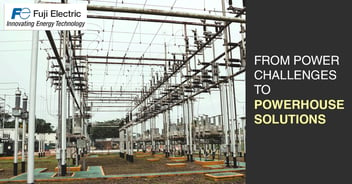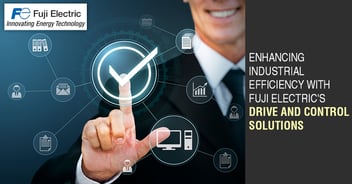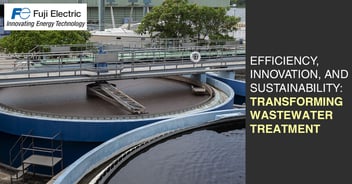Hydrogen Mission, Decarbonized Society and Fuji Electric

Hydrogen Energy
Hydrogen is emerging as an important energy source since it has zero carbon content and is a non-polluting source in contrast to hydrocarbons that have net carbon content in the range of 75–85 percent. Hydrogen energy is expected to reduce carbon emissions that are set to jump by 1.5 billion tons in 2021. It has the highest energy content by weight and lowest energy content by volume.
Hydrogen energy is currently at a nascent stage of development, but has considerable potential for aiding the process of energy transition from hydrocarbons to renewables. Though it is the most abundantly available element on earth, commercially viable Hydrogen can be produced from hydrocarbons including natural gas, oil and coal through processes like steam, methane reforming, partial oxidation and coal gasification; as well as from renewables like water, sunlight and wind through electrolysis and photolysis and other thermo-chemical processes.
Hydrogen Mission
India’s National Hydrogen Mission aims to cut down carbon emissions and increase the use of renewable sources of energy while aligning India’s efforts with global best practices in technology, policy and regulation. Hydrogen is at an early stage of entering the energy sector in India. Government and non-government funding agencies are engaged in R&D projects pertaining to hydrogen production, storage, utilization, power generation, and transport applications.
Fuji’s Role to Achieve Decarbonised Society
Fuji Electric is working to achieve a decarbonized society based on the Fuji Electric Basic Environmental Protection Policy and the Environmental Vision. In June 2019 the Fuji Electric Environmental Vision 2050 was formulated to determine the direction of the Company’s environmental activities. Guided by this vision, Fuji continue to achieve steady results. Meanwhile, governments around the world are boldly seizing the initiative to “decarbonize,” a movement that is starting to penetrate social and industrial sectors as a new growth strategy. Thus, in fiscal 2021 Fuji will endeavour to rethink the Environmental Vision 2050 from the perspective of strengthening business operations and have also decided to consider what specific initiatives are required for achieving the vision. Fuji has established clear environmental targets that need to be actively addressed in the long run. It aims to achieve carbon neutrality in the overall supply chain in 2050 to realize a society with net-zero carbon emissions.
Given the shift in society towards carbon neutrality, in fiscal 2021 Fuji announced the commitment to helping realize a society with net-zero carbon emissions. Fuji has also raised the fiscal 2030 reduction target to at least −46% (vs. FY2013) and is currently considering what concrete measures to implement. Going forward, in addition to production activities, including procurement and transportation, Fuji will aim to achieve carbon neutrality across the entire supply chain by working to reduce CO2 emitted when products are being used.
 China
China Europe
Europe France
France Hong Kong
Hong Kong Indonesia
Indonesia Japan
Japan Singapore
Singapore Thailand
Thailand USA
USA

